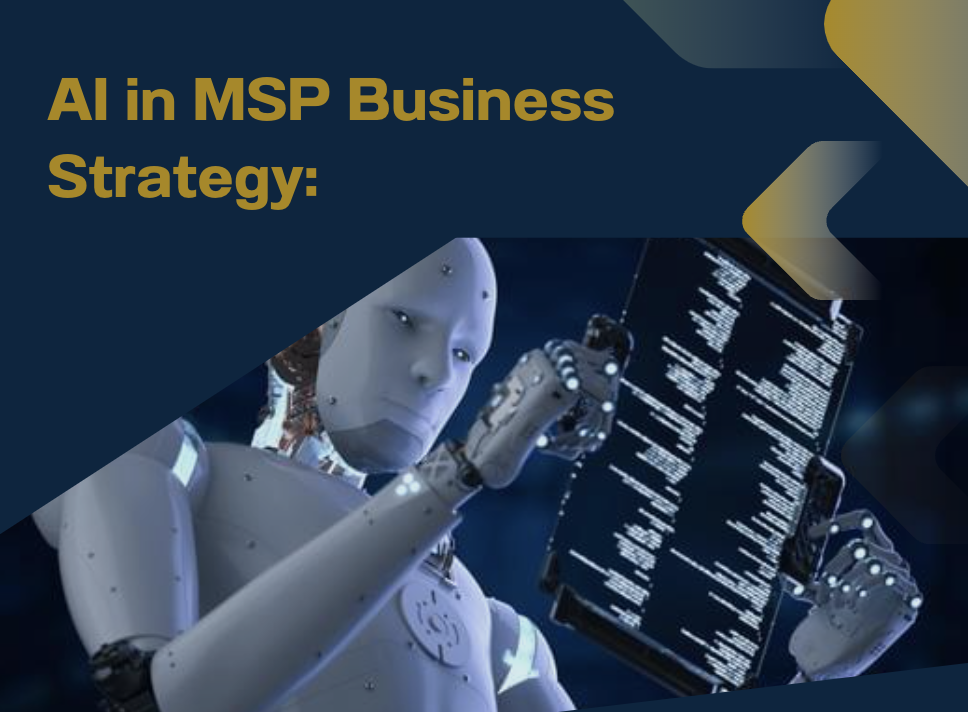As Managed Service Providers (MSPs) look to expand their offerings and drive greater efficiency, Artificial Intelligence (AI) is emerging as a powerful tool. AI offers MSPs the ability to enhance their service offerings, improve operational efficiency, and deliver more value to clients. However, with these opportunities come significant challenges, particularly around privacy and security.
This article will explore how MSPs can incorporate AI into their business strategies while addressing the key privacy and security considerations that come with it.
The Role of AI in MSP Business Strategy
AI can revolutionize how MSPs operate, enabling them to automate routine tasks, predict and prevent issues before they arise, and deliver more personalized client services. The benefits of AI include:
- Enhanced Efficiency: AI can automate repetitive tasks, such as system monitoring and maintenance, allowing MSPs to focus on more strategic activities.
- Proactive Problem Solving: With AI-driven analytics, MSPs can anticipate potential issues and address them before they impact the client’s business.
- Improved Decision-Making: AI provides valuable insights that can help MSPs make more informed decisions and optimize their service delivery.
However, while AI can provide these benefits, it also introduces new challenges that MSPs must address, particularly within privacy and security.
Privacy Considerations When Integrating AI
- Data Collection and Storage
AI relies on vast amounts of data to function effectively. MSPs must be mindful of how they collect, store, and process this data, ensuring they comply with privacy regulations. Establishing clear guidelines on data retention, anonymization, and access controls is essential to prevent unauthorized access and ensure data integrity. Furthermore, obtaining explicit consent from clients before deploying AI tools that process their data is not just good practice—it’s a regulatory requirement in many jurisdictions.
- Bias and Fairness in AI Algorithms
AI algorithms can inadvertently perpetuate biases present in the data they are trained on. MSPs need to ensure that their AI systems are designed to be fair and unbiased, particularly when making decisions that could impact clients or their end users. Regular audits of AI algorithms for bias and implementing mechanisms for human oversight are critical steps in maintaining fairness and client trust.
Read Also: How a Well-Executed vCISO Program Can Safeguard Your MSP Operations and Build Trust with Clients.
Security Challenges in AI Integration
- AI and Cybersecurity Risks
While AI can enhance cybersecurity, it also introduces new risks. Cybercriminals increasingly use AI to launch sophisticated attacks, such as AI-driven phishing scams or automated exploits. MSPs must implement robust security measures to protect their AI systems from being compromised. This includes regular vulnerability assessments, encryption of AI models, and real-time monitoring for any signs of malicious activity.
- Compliance with Security Standards
Integrating AI into an MSP’s strategy requires adherence to industry security standards. MSPs should ensure that their AI systems are compliant with these standards, which may involve conducting regular security audits, implementing best practices for AI security, and staying updated on the latest regulatory changes.
Best Practices for Secure AI Integration
- Develop a Comprehensive AI Governance Framework
MSPs should establish a governance framework that outlines the policies and procedures for AI deployment, including privacy and security considerations. This framework should address issues such as data management, AI model training, bias detection, and incident response. Clear accountability structures should be in place to ensure that AI initiatives align with the MSP’s overall business strategy and regulatory requirements.
- Invest in AI Expertise and Training
As AI technology evolves, MSPs must invest in ongoing team training and development. This includes upskilling in AI, cybersecurity, and data privacy. Having a team with the right expertise ensures that AI tools are deployed effectively and securely while staying ahead of emerging threats and challenges.
- Collaborate with Industry Partners
MSPs can benefit from collaborating with industry partners, AI vendors, and regulatory bodies to stay informed about the latest developments in AI technology and privacy regulations. Engaging with the broader MSP community can also provide valuable insights and best practices for securely integrating AI into business operations.
Conclusion
Integrating AI into an MSP’s business strategy offers significant opportunities for growth and innovation. However, it is essential to address the privacy and security challenges that come with this technology. By focusing on data governance, transparency, security, and ethical considerations, MSPs can leverage AI’s full potential while safeguarding their clients and their business.
If you are looking to scale up your MSP and overcome security challenges, our Gold Team offers a comprehensive suite of services dedicated to helping modern MSPs navigate the complexities of AI integration, from enhancing security protocols to optimizing business strategies.
Contact Gold Team today to learn how we can help you future-proof your business and thrive in an increasingly AI-driven landscape.



